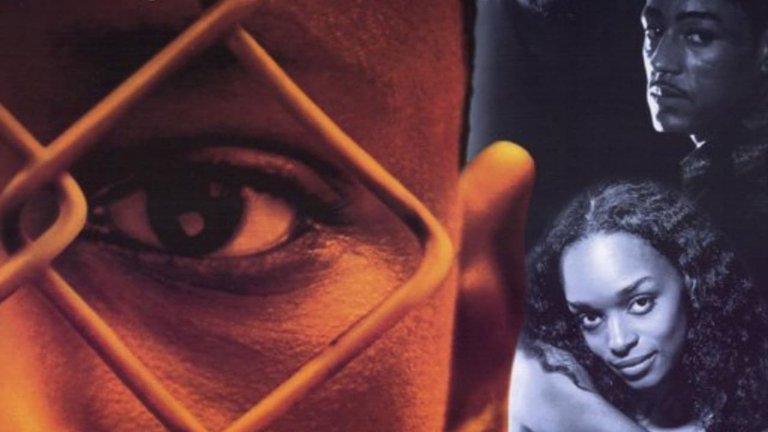
In early 1990s critical and commercial success of films like Boyz n the Hood and Menace II Society resulted in flood of films that depicted poverty, drugs, violence and other sad realities of American inner-city ghettos. After a while all those films began to look the same. Yet, there was one filmmaker that took original approach to this dark and over-exploited subject. The result of that was Fresh, 1994 drama written and directed by Boaz Yakin.
Originality of the approach can be seen in seemingly odd choice for the movie's protagonist. Michael a.k.a. Fresh (played by Sean Nelson) is a parentless 12-year old boy from drug-infested Brooklyn ghetto who lives in an apartment together with Aunt Frances (played by Cheryl Freeman) and eleven other children. His older sister Nicole (played by N'Bushe Wright) has already turned into junkie and his father Sam (played by Samuel L. Jackson) has left home due to alcoholism. However, Sam has kept enough of his brain cells to earn living by playing chess games with passer-bys on street corners. Michael occasionally visits his father and plays chess thus sharpening his intellectual skills. Those skills serve him very well when he works as a courier for couple of local drug dealers. He is so good at his job that his sister's boyfriend and part time employer Esteban (played by Giancarlo Esposito) thinks highly of him, being convinced that he would rule the street corners when he grows up. Michael, on the other hand, has different ideas of his future - he carefully saves all of his earnings, preparing for the day when he would get himself and Nicole out of ghetto. Before that happens, fate intervenes and forces Michael to re-evaluate his life and plans.
Fresh looks surprisingly good for someone's directorial debut, and it is even more surprising when the director used to write scripts for few rather unimpressive films like The Rookie and The Punisher. Yet, here Boaz Yakin truly shines as superb storyteller. The idea to use pre-teen boy as a protagonist of inner city drama wasn't particularly original, but the use of the character was. Instead of using the little man as a cheap excuse to lament about the loss of youthful innocence or to try to hammer down some important social message Yakin uses the character of Michael/Fresh to make cold, almost clinical and at times almost ironic observation about inner city life. Same sad realities that can ruin some people's lives can actually make some people stronger. Michael/Fresh is too young and weak to get physical strength, but instead he gains his strength in intellect. He is smart because he, unlike children in more "normal" circumstances can't afford no to be. He must learn to listen instead of talking, to observe instead of show off and, finally, manipulate instead of being manipulated. It seems that Michael, instead of being victim, is nothing short of success story in the context of his environment, but Yakin wisely reminds us that there is always some emotional price to be paid for this success, which is revealed in the last haunting shot.
All of Yakin's storytelling skills would be used in vain without enormous acting talent of young Sean Nelson. His big black eyes that so coldly and cynically look at the despair around him are much better in conveying the message of film than any form of cheap melodrama. Nelson is so good that he can stand even to such acting giants like Samuel L. Jackson in short but memorable role of his father. Giancarlo Esposito is also very good in a very believable and almost humane portrayal of drug baron. Unfortunately, not all of the acting is that good - Natima Bradley in the role of Michael's love interest looks somewhat too cute and lacks chemistry with Nelson. Fortunately, this is the only major flaw of the film.
In order to make his film as different from standard ghetto films, Yakin uses different style as well as different story or protagonists. Yakin, instead of bombarding viewers with quick succession of images and thus making his film indistinguishable from rap video, uses more conservative approach, sticking the camera to his protagonists and allowing them to tell their lines. The photography by Adam Holender uses bright colours and lights the ghetto streets in a way that make them almost glamorous. Finally, Stewart Copeland's musical score make Fresh even sound different from other inner city dramas. Because of all that, few films are as aptly named as Fresh is.
RATING: 8/10 (+++)
(Note: The text in its original form was posted in Usenet newsgroup rec.arts.movies.reviews on November 14th 2002)
==
Blog in Croatian https://draxblog.com
Blog in English https://draxreview.wordpress.com/
Cent profile https://beta.cent.co/@drax
Minds profile https://www.minds.com/drax_rp_nc
Uptrennd profile https://www.uptrennd.com/user/MTYzNA
Brave browser: https://brave.com/dra011
BTC donations: 1EWxiMiP6iiG9rger3NuUSd6HByaxQWafG
ETH donations: 0xB305F144323b99e6f8b1d66f5D7DE78B498C32A7
Critic: AAMovie URL: https://www.themoviedb.org/movie/13815-fresh?language=en-US